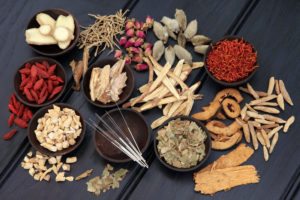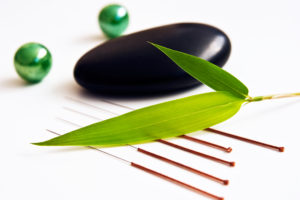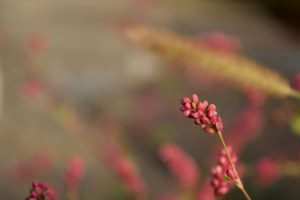Mu Dan Pi 牡丹皮
Dr. Tehea Robie, L.Ac., DAOM, Dipl. OM

This beautiful, blood whispering peony flower holds some powerful herbal medicine in its roots. The root bark of the moutan tree peony (mu dan pi) is one of three Chinese medicine herbs made from the root of the peony plant. Mu dan pi comes from paeonia suffruticosa; its sibling, paeonia lactiflora, produces the other two herbs (chi shao and bai shao). It resides in the “cool the blood” category. In Chinese medicine terms, it is said to clear heat, cool the blood, invigorate the blood, clear liver fire and drain pus or swelling.
As with all herbs in Chinese medicine, it is rarely prescribed alone. What do I mean when I say that peony is a blood whisperer?

- This is not medical advice. We study long and hard before prescribing formulas to patients. Please see a licensed provider before taking Chinese herbs.
- acrid, bitter, slightly cold
- heart, liver, kidney
- contraindications: pregnancy, cold disorders, cold from stomach deficiency
- counteracts tu su zi, bei mu and da huang.
- do not use with garlic.
Combined with its peony sibling, chi shao (along with other herbs), mu dan pi can be used to address various menstrual disorders, blood in the urine (hematuria), stool (hematochezia), vomit (hematemesis) and nose (epistaxis). This duo can also address rashes due to heat injuring the ying qi and wei qi. Bai shao, mu dan pi’s other peony sibling, tonifies the blood (check back later for more on that).
Used with tao ren (apricot seed) and gui zhi (cinnamon twig), mu dan pi can be included in formulas that address bruises and pain from injury. Mu dan pi can be included with zhi mu (Anemarrhena Rhizome) to ease menopausal symptoms.
In the classical text Shennong Bencao Jing 神农本草经 (ca. 100 A.D), mu dan pi is said to be used in formulas for “wind stroke” and “fright epilepsy”.
But what research has been conducted on this herb?
*Because we prescribe herbs in a timely way, when the presentation changes, the prescription changes. The holistic pattern or constellation of symptoms points us to the right formula, not a Western diagnosis. Chinese herbal medicine consists of formulas that are carefully balanced combinations of multiple herbs, with incredible synergy (the sum of the whole is greater than the sum of individual parts). Random control trials do not accurately reflect the efficacy of Chinese herbal formulas. Nevertheless, they hold up pretty well in studies.

Random Control Trials
Research in 2010 evaluated both mu dan pi and chi shao’s effects on the blood. Paeonol, paeoniflorin, benzoylpaeoniflorin and benzoyloxypaeoniflorin were among the active ingredients believed to contribute to platelet aggregation and blood coagulation.
Another study in 2020 evaluated mu dan pi’s potential to address IBD (inflammatory bowel disease). In this study, mu dan pi reduced the inflammation of the inner lining of the colon and reduced pathological changes, showed inhibition of IRF (interferon regulatory factor) and NF-κB (nuclear factor kappa B) reporters and the down regulation of TNF-α (tumor necrosis factor alpha) and IL-6 (interleukin 6).
Next time you stumble upon some beautiful peonies, recognize them for the blood-whispering beings that they are.
You can make an appointment for an herbal consultation here.




You must be logged in to post a comment.